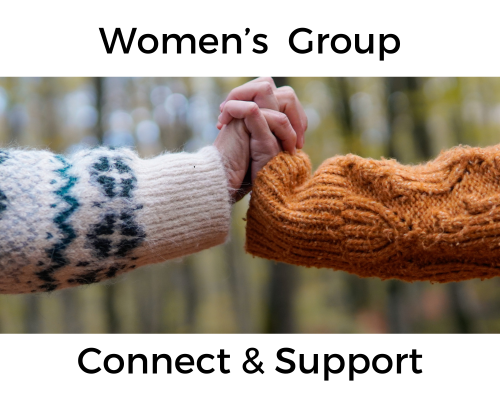
Feeling Stuck and Unfulfilled in Your Life?
Feeling Stuck and Unfulfilled?
Get Help Moving Forward
Feeling Stuck and Unfulfilled?
Things Need to Change?
Feeling stuck and unfulfilled? Does life feel like it’s at a standstill, as if you’re running in place but never getting anywhere? If so, you’re far from alone. Many of us face moments—or even prolonged periods—of feeling stuck and unfulfilled. Maybe it’s that nagging feeling that something is missing, that you’re not quite where you thought you’d be or doing what truly aligns with your needs and passions.

Causes of Feeling Stuck and Unfulfilled

This sense of stagnation can seep into our personal lives, relationships, and careers, leaving us isolated and unsure of what steps to take next. The good news? This feeling doesn’t have to be permanent. In additon, by taking intentional steps, you can break free from this cycle and rediscover a sense of purpose and fulfillment in your life.
This blog will explore the reasons behind feeling stuck, actionable strategies to initiate positive change, and real-life success stories to inspire you. Whether you want to improve your personal growth, mend relationships, or find clarity in your professional life, there’s a path forward—and it starts here.
Understanding the Root Causes of Feeling Stuck
Before we can move forward, we need to understand what’s holding us back. There are many reasons why someone might feel stuck or unfulfilled, and the causes often overlap between personal, professional, and emotional realms.
Personal Challenges
Sometimes, our inner struggles are the primary obstacles in our growth. In addtion, limiting beliefs, self-doubt, or fear of failure can prevent us from taking the necessary risks to move forward. Have you ever thought to yourself, “What if I’m not good enough?” These thoughts, though common, can anchor us in place.
Professional Stagnation
Many people feel trapped in careers that don’t align with their values or passions. Whether it’s staying in a job for financial security or because it’s “safe,” this lack of alignment can result in dissatisfaction. Maybe you may feel a lack of purpose, dread Mondays, or experience burnout—all signs of being professionally stuck.
Relationship Struggles
Feeling stuck in romantic, familial, or social relationships is another big source of unease. Also, poor communication, unresolved conflicts, or mismatched priorities can create an emotional rut, leaving us drained rather than fulfilled by our connections with others.
Ask yourself this question: What is driving my sense of feeling stuck? Sometimes, the root cause isn’t what it initially seems—but identifying it is the first step toward creating change.
Strategies for Personal Growth
Now that you’ve started uncovering the reasons behind your stagnation, it’s time to explore actionable solutions to spark personal growth. Start small but think big—lasting change happens in increments.
Set Achievable Goals
Goals are your roadmap to moving forward. Break them down into smaller, actionable steps, often referred to as “micro-goals.” For example, rather than focusing on “get fit,” start with a short-term goal like “exercise for 15 minutes three times a week.” Each small win builds confidence and momentum.
Adopt a Growth Mindset
A growth mindset is the belief that your talents and abilities aren’t fixed—they can be developed through effort and learning. When you shift your focus to growth, failure becomes an opportunity to learn rather than a reason to stop trying. Ask yourself, “What can I learn from this experience?”
Prioritize Personal Development
Devote time to activities that expand your skills or bring joy to your life. This could mean picking up that book on leadership you’ve been meaning to read, attending a workshop, or even exploring hobbies like painting, gardening, or cooking. Doing things for yourself can reignite your sense of purpose.
Enhancing Relationships

Many of us derive fulfillment from our connections with others. Yet, when those bonds weaken, the effect can seep into all areas of life. Strengthening your relationships—both romantic and social—can reignite trust, happiness, and hope.
Focus on Open Communication
Communication is the heart of a healthy relationship. Set aside technology for a while and have deep, meaningful conversations with your loved ones. Listen actively. Encourage openness by asking thoughtful questions like, “How are you really feeling?” or “What do you need from me to feel supported?”
Spend Quality Time Together
Life gets busy, but prioritizing time with loved ones can rebuild faltering connections. Even simple activities, like cooking dinner as a couple or having a casual coffee catch-up with a friend, can make a big difference.
Create Shared Goals
Whether it’s planning a vacation, starting a new project, or simply finding new shows to watch together, having shared aspirations can deepen your bonds and give you something positive to work toward together.
Coping with Feeling Unfulfilled

Seeking Professional Guidance
Sometimes, moving forward requires outside guidance. There’s no shame in asking for help—it’s an act of strength, not weakness.
Find a Mentor or Coach
A mentor or life coach can offer fresh perspectives and tools tailored to your unique challenges. They’ve likely been in your shoes and can provide practical advice for navigating your struggles.
Consider Therapy
Feeling stuck often has deeper emotional roots that professional therapists are trained to uncover. They can help you work through issues like anxiety, trauma, or loss, and provide a safe, nonjudgmental environment for growth.
Seek Community Support
Joining a group—whether it’s for fitness, hobbies, or professional interests—can offer encouragement and accountability. Knowing you’re not alone can ease the burden of feeling stagnant.
Real-Life Success Stories
Hearing about others who overcame similar challenges can motivate and inspire. Here’s a story to illustrate hope and the possibility of change:
Emily, 32, And the Power of Tiny Steps
For years, Emily felt trapped in a high-pressure corporate job that left her exhausted and unfulfilled. She started therapy and identified that her job was misaligned with her love for creativity. Slowly, she transitioned careers, took beginner graphic design classes, and eventually landed a role at a design firm. “Feeling stuck didn’t miraculously disappear overnight,” she says, “but by taking small steps, I found a career that makes me happy.”
Your story can be next.
Take the First Step Today
Feeling stuck and unfulfilled doesn’t have to define your life. By addressing the root causes, prioritizing personal growth, strengthening relationships, and seeking support, you’re already paving the way for the change you long for.
Ask yourself now: What’s one step you can take today to move forward? Remember, the smallest spark can ignite the biggest transformations.
We’d love to hear your thoughts and experiences. Have you overcome feeling stuck? Drop your story in the comments and connect with others on the same path.
And if you’re unsure of where to start, begin with the resources you have—books, friends, or even this post. You’ve got this!
If you’re feeling stuck and unfulfilled, contact us today to schedule a session.














